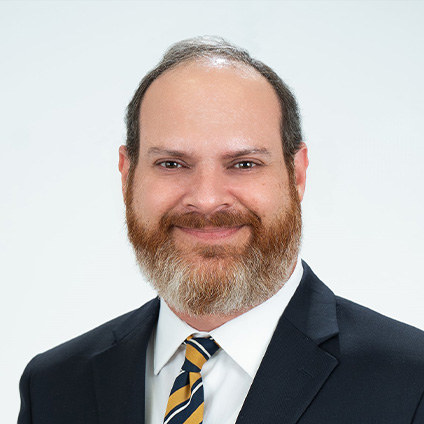My 13-year-old daughter is so anxious about her sexual orientation she is self-harming. What should we do?
Ask an Expert
My 13-year-old daughter is so anxious about her sexual orientation she is self-harming. What should we do?
Clinical Expert: Jerry Bubrick, PhD
en Español
Question
My daughter, who just turned 13, has always been a "germaphobe" (our word), but nothing debilitating. Recently, we believe a girl in her grade told her that she felt uncertain as to her sexuality because she finds my daughter very pretty. This set my daughter on a path of questioning her own sexuality — with so much distress that she is depressed, losing weight, asking incessant circular questions and completely withdrawing from life. She has also self-harmed to take her mind off it and we have had her in the emergency room twice.She is now on medication to reduce her anxiety, but it really isn't working. She is in with psychologists but in my mind she is getting worse. If this is OCD, my question is how would ERP — exposure and response prevention — work for a girl with no sexual experience and no maturity for exploring it? To be clear, her sexuality is not something that matters to us. Her happiness does.
Answer
This is a pretty straightforward case of OCD. Having sexual obsessions or intrusive thoughts about one’s sexuality and then engaging in compulsions to reduce that anxiety clearly fits into the model of OCD and it functions just like fear of contamination or any other OCD obsession. Sometimes when people hear about obsessions that have to deal with sexuality they think it should be treated differently, but really it’s the same.
What’s more complicated is that not only is she so anxious about all this, it also sounds like she’s getting depressed as a result — she’s losing weight, she’s withdrawing from her friends. Even more alarming, she’s self-harming, which is not typical for kids with OCD. So it sounds like she has acute OCD as well as depression, and the fact that she’s gotten to the point where she’s self-harming indicates that she doesn’t have good coping skills to deal with the stress she’s feeling.
Your daughter would be a great candidate for cognitive therapy. Even before doing exposure and response prevention, it would be good for her to start with cognitive therapy so that she can understand how her thoughts are affecting how she’s feeling and what she’s doing, and how these things are all related. It should also be a priority to give her better coping skills to deal with the anxiety she is feeling, because right now she’s relying on reassurance seeking and self-harming, which obviously isn’t good. Starting with cognitive therapy that gives her better distress tolerance skills puts her in a much better place for when she starts exposure therapy.
Now in reference to your ERP concerns, exposures ultimately are always about facing uncertainty. In this particular case she’s having obsessions that make her question her sexual orientation. The exposures would be geared towards accepting that uncertainty, and would have little to do with her emotional maturity or understanding of sex. It’s the same as helping kids who have an obsession with germs. For them exposure therapy isn’t about confirming or denying the presence of germs, it’s about allowing them to be okay with the possibility of them.
Finally, if she’s working with a psychologist right now who is a traditional talk therapist, it could actually be making her worse. People who aren’t CBT-trained and aren’t OCD specialists often don’t understand that giving lots of reassurances — you’re not gay; don’t worry about it; it’s okay if a girl is attracted to you — might make a person with OCD feel better in the moment, but then worse later on. So finding a professional who is trained in behavioral treatment for OCD and who can help your daughter learn healthier ways of dealing with her stress and anxiety right now is very important.
This article was last reviewed or updated on October 31, 2023.

Jerry Bubrick, PhD
Jerry Bubrick, PhD, is the former Director of the Intensive Pediatric OCD Program and senior psychologist in the Anxiety Disorders Center at the Child Mind Institute. Read Bio
